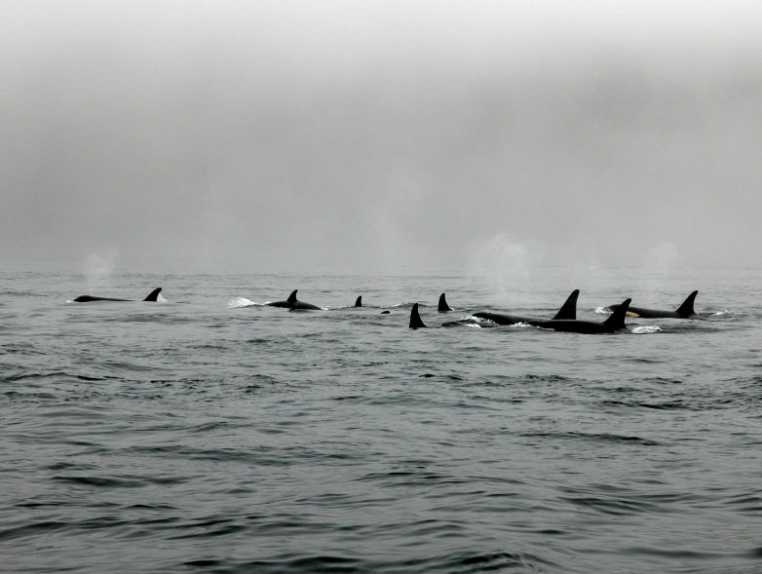Britons are being called upon to watch out for stranded whales and dolphins as conservationists look to explain the ongoing rise in the number being washed onto the nation's beaches.
The call is being put out by the UK Cetacean Strandings Investigation Programme (CSIP), whose latest figures illustrate the extent to which such strandings have been increasing over the past few years. According to the conservation body's figures, cases have increased by around a quarter since it took over the task of monitoring cetaceans washing up on Britain's beaches from the Natural History Museum back in 1990. While over the first ten years, the CSIP tended to record an annual total of between 300 to 400 strandings, over the course of the new millennium, this number has crept up, with 800 dolphins and whales found in 2003 and a total of around 500 likely for the current year, thanks partly to the as-yet-unexplained case of the 33 pilot whales washed ashore on Rutland Island, off the northwest coast of Northern Ireland just last month.
Furthermore, given the relative lack of organised 'stranding-spotter' groups, particularly in England, many cases go unreported, meaning the annual total is likely to be much higher.
Of course, these figures needn't be cause for any great alarm. Indeed, the CSIP itself acknowledges that the rise in strandings is to be expected, and even welcomed as proof that overall numbers are recovering, with a few sad isolated cases reflecting a wider growth in populations as dolphins and whales such as humpbacks head to British shores to feed on healthy stocks of herring and mackerel.
As Rob Deaville, project manager for the CSIP, notes, populations of dolphins and whales in British waters have been increasing steadily over the past few years, thanks in no small part to the cessation of commercial whaling elsewhere in the world and the ongoing efforts of the fishing industry to reduce accidental catches. At the very least "that's one good piece of news" to come out of this.
What is of concern, however, is that, with post-mortems tending to show that the majority of stranded animals die from natural causes, often appearing in good health rather than displaying any obvious signs of disease, injury or trauma, scientists are struggling to explain why they are being washed ashore.
Additionally, speaking to the Earth Times, Mr Deaville said that "the jury's still out" on whether or not ongoing rises in water temperatures around the UK can be held at least partly responsible for this increase in strandings, though this is certainly leading to some cold-water species being replaced by those that prefer warmer waters and it is known that some types are more susceptible to becoming beached than others.
At the same time, he also explained that, whatever the reason for this increase in strandings, the fact remains that dolphins and whales are still facing a range of threats, some of which can be dealt with in the short-term, though others may require longer-term solutions.
Above all, "by-catch remains the number one concern" for conservationists, despite the ongoing efforts of fishing boats to mitigate against this, for example by making lines and nets more-visible or fitting electronic equipment geared towards deterring dolphins from approaching ships.
Perhaps more worryingly, he concluded that Britain's seas are unlikely to get cleaner any time soon.
"You can't take pollution out of the environment, it'll be there for decades," he said. "You just have to try and reduce all the other factors that impact upon the wellbeing of cetaceans."
Looking forward, Mr Deaville suggested that perhaps the best hope for these animals lies with enhanced public awareness of their plight, whether this is through educational programmes or unfortunate sightings of strandings on beaches up and down the country.
As with most areas of conservation, better and more-abundant data will also play a key role and it's here that members of the public heading to the coast could be just as important as the scientists in the years ahead.










